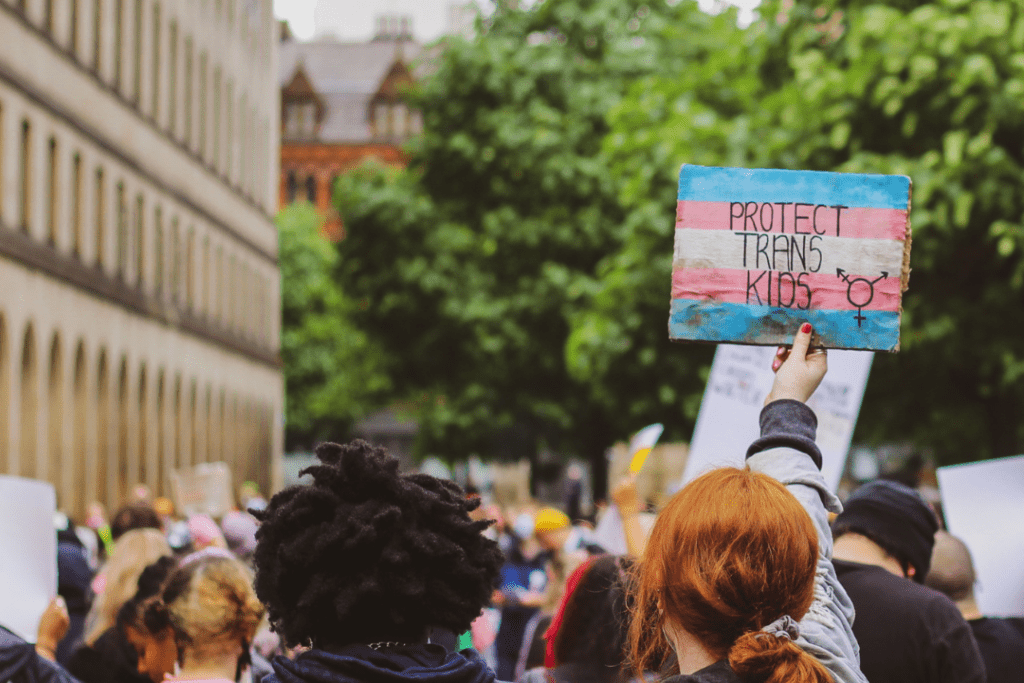The Religious Discrimination Bill, mockingly called the “anti-gay bill” in my circles, died an ignoble death last week.
Was it because progressive politicians took a unified stance against the bill and all that it represents to vulnerable communities? Was it because the Federal government realised that after two years of a traumatic pandemic, fires and floods, that the people of Australia (which does include LGBTIQ+ people) need empathy instead of vilification?
No. It was because some religious lobby groups spat the dummy about being unable to fire queer teachers or expel trans students, and ordered the Morrison government keep the bill off the table.
Forgive my subdued celebration.
I am young, and that feels markedly obvious in queer circles. The criminalisation of homosexuality was before my time. The fight for same sex marriage was won in my first year of university. In many ways I am incredibly lucky. I recognise that when I talk to older generations of the queer community, when I see the pain of decades of battles etched into their faces.
But in recent years I have also felt incredibly – heartbreakingly – lucky that I am not younger. That I am not currently a non-binary teenager facing a political and media spectacle about whether or not my human rights should be protected.
Such a spectacle does not just exist on the TV or in the newspaper. It bleeds into classrooms, the playground and home. Online vitriol quickly becomes real life harassment, abuse and isolation. Over 60% of LGBTIQ+ people experience verbal harassment, but 80% of homophobic bullying occurs at schools. Over 43% of trans people have attempted suicide, but that number spikes for trans kids.
Members of our community do not commit suicide because being queer is inherently horrible. We are driven to harm, to death by a society that does not accept us. By a society that sees fit to treat our human rights as a political football on the eve of an election.
Human rights are a balancing act. In legal terms, we apply a “proportionality” standard to assess whether the interference with a human right is justified. For example, we limit the right to freedom of speech by imposing anti-discrimination legislation to protect other’s rights to be free from racial prejudice. The Religious Discrimination Bill was an attempt to balance the human right to freedom of religion with other fundamental human rights.
I write other “fundamental human rights” because we must recognise that this bill was not about balancing the right to freedom of religion and the right to freely choose who you marry. While the origin of this bill was a religious backlash against the same sex marriage plebiscite, the impact of this bill would have been much wider.
It would have elevated the right to freedom of religion above the rights of queer people to seek an education, to enjoy medical care, to be free from vilification and violence, and – as we are reminded by the horrifying statistics about queer hate crimes and suicide – to live in dignity. Our most fundamental right.
The bill did not appropriately balance the rights of our (religious and/or queer) communities. Human rights organisations have overwhelmingly welcomed the bill’s indefinite hiatus from Parliament. Perhaps the recent debate will also spur on further action to enshrine a human rights charter in legislation or the Constitution. Indeed, Australian Lawyers for Human Rights have rightly called for a Federal Human Rights Act that is appropriately structured to balance the right to freedom of religion with other human rights.
But this is not just a humiliating loss for the Federal government in the lead up to an election. For my community, this is another painful sign that the increasingly emboldened transphobia and homophobia in places like the US and the UK are being mirrored in Australia.
I cannot celebrate the bill’s death because it is not much of a victory.
Hate speech (and all the harms that come with it) is being normalised by the spectacle around this bill. And that violence will continue, harming real people, irrespective of the letter of the law.



